Oxymorphone (Opana) 10mg is an opioid medication. It’s used to treat severe pain not relieved by non-opioid medications. Oxymorphone comes as an immediate-release (IR) tablet that’s take by mouth, typically 4 to 6 hours. It also comes as an extended-release (ER) tablet that’s usually taken every 12 hours. To lower the risk of opioid use disorder, the pain specialist will prescribe the lowest dose for the shortest duration of time needed to treat your symptoms. Side effects of this medication include nausea, sleepiness, and dizziness. Brand names Opana and Opana ER both have been discontinued.
What is Oxymorphone?
What is Oxymorphone used for?
-
Management of short-term pain (immediate-release tablet only) or long-term pain (extended-release tablet only) that isn’t relieved by non-opioid pain medications alone
How Oxymorphone works
Oxymorphone is an opioid. It attaches to certain opioid receptors in your brain to lessen how much pain you feel.
Drug Facts
What are the risks and warnings for Oxymorphone (Opana)?
Oxymorphone can cause some serious health issues. This risk may be even higher for certain groups. If this worries you, talk to your doctor or pharmacist about other options.
Potential for addiction and misuse
-
Risk factors: Personal or family history of alcohol or substance use disorder | Personal or family history of mental health problems
Oxymorphone is a controlled substance because it has a risk for misuse and addiction. To lower this risk, your pain specialist will prescribe you the lowest dose needed to manage your pain for the shortest period of time. Take the medication exactly as prescribed. Don’t change how much or how often you take it without talking to your prescriber first.
Never break or crush oxymorphone ER because this medication has a special coating that allows it to be slowly released in your body. Damaging the coating will cause the body to absorb too much medication too quickly and put you at very higher risk for serious and life-threatening side effects, such as dangerously slow breathing and trouble staying awake.
Because of the risk for misuse and addiction, oxymorphone is only available through a Risk Evaluation and Mitigation Strategy (REMS) program called the Opioid Analgesic REMS program. Your prescriber and pharmacy must register with the program, receive training on proper medication use, and discuss with you about how to take oxymorphone safely.
Dangerously slow breathing (respiratory depression)
-
Risk factors: Taking medications that can cause slow breathing | Drinking alcohol | Older age | Being frail | Medical conditions that cause breathing problems (e.g., COPD, asthma, head injury) | Taking too much oxymorphone
Oxymorphone can cause dangerously slow breathing, which can be life-threatening. This can happen to anyone and even at recommended doses. But the risk is greatest when you first start treatment or when your pain specialist raises your dose.
Your pain specialist will recommend that you have naloxone (Narcan) to carry with you at all times. Naloxone is a medication that can reverse slowed breathing from opioids. Use naloxone, call 911, and get medical help right away if you or your loved one notices that you have trouble breathing or have bluish-colored lips, fingers, or toes.
Risk for opioid overdose
-
Risk factors: History of opioid use disorder | Previous opioid overdose | Taking high doses of oxymorphone | Taking more opioids than prescribed | Alcohol use
Take oxymorphone exactly as prescribed. Taking too much medication or taking it more often than prescribed can lead to an overdose. It can be very dangerous if someone accidentally swallows the medication. Be sure to keep oxymorphone out of reach from children, pets, and visitors to prevent accidental exposure or overdose.
Symptoms of an opioid overdose include not responding to sound or touch, extremely slow breathing, slow heartbeat, extreme sleepiness, and cold or clammy skin. Be sure you and your loved ones know how to recognize an overdose. Your prescriber will recommend getting naloxone (Narcan) — either by prescription or over the counter. Naloxone can help treat an opioid overdose. Carry naloxone with you at all times; use it and call 911 right away if an overdose happens.
Difficulty concentrating and extreme sleepiness
-
Risk factors: Taking high doses of oxymorphone | Age 65 years or older | Drinking alcohol | Taking other medications that can cause sleepiness
Oxymorphone can cause extreme sleepiness and lower your ability to think, react, and focus. Don’t drink alcohol with oxymorphone. Also don’t take oxymorphone with other medications that can cause sleepiness or “brain fog” (e.g., benzodiazepines, muscle relaxants, sleep medications). Otherwise, these side effects might worsen.
Make sure you know how oxymorphone affects you before driving a car or doing activities that require your concentration. Talk to your prescriber right away if you feel too sleepy from the medication.
Serious interactions
Oxymorphone can have serious interactions with alcohol and several medications. For example, drinking alcohol while you’re taking oxymorphone can put you at serious risk for drowsiness and confusion. Also, taking oxymorphone with medications that slow your body down (e.g., benzodiazepines, other opioids, muscle relaxants) can put you at risk for having dangerously slow breathing.
Let your care team know what medications you’re taking to make sure they’re safe for you to take together. Also speak with your care team first before making any changes to your medications because sudden dose adjustments can be harmful.
Harm to newborn babies
Long-term use of oxymorphone during pregnancy can cause your unborn baby to become dependent on the medication. This is because oxymorphone can pass through the placenta to your unborn baby.
Once your baby is born, they can experience withdrawal symptoms, such as high-pitched crying, poor feeding behavior, trembling, abnormal sleep patterns, and even seizures. This condition is called neonatal opioid withdrawal syndrome and can be life-threatening if not recognized and treated in time. Let your healthcare professional (HCP) know if you’ve taken oxymorphone during pregnancy or if you notice these symptoms in your baby.
Physical dependence and withdrawal
-
Risk factors: Long-term use of oxymorphone
If taken regularly for a long time, oxymorphone can cause physical dependence. This means that your body relies on the medication to function. And you might experience withdrawal if you lower your dose too quickly or suddenly stop taking the medication. Withdrawal symptoms include anxiety, restlessness, irritability, runny nose, yawning, sweating, and chills.
Don’t suddenly lower your dose or stop taking oxymorphone suddenly without talking to your prescriber first. If you need to stop this medication, your prescriber will slowly lower your dose over time to prevent withdrawal symptoms. Talk to an HCP if you have concerns about taking oxymorphone because of the risk for withdrawal.
Serious allergic reaction
Some people have experienced serious allergic reactions after taking oxymorphone. Symptoms have included swelling of the face and tongue, hives, rash, nausea and vomiting. If you experience any of these symptoms, let your healthcare team know. They might ask you to stop taking oxymorphone and consider other options.
Low blood pressure
Oxymorphone can cause extremely low blood pressure. For example, your blood pressure might suddenly drop when you stand from a sitting or lying down position. This can lead to dizziness and fainting. To avoid falling, get up slowly if you’ve been sitting or lying down. Talk to an HCP if dizziness or lightheadedness doesn’t go away.
Low adrenal hormone levels
-
Risk factors: Taking oxymorphone for longer than 1 month
Some people taking opioid medications like oxymorphone have had low adrenal hormone levels. This might be more likely to happen after taking opioids for longer than 1 month.
Tell your healthcare team if you have symptoms of low adrenal hormone levels, such as tiredness, dizziness, weakness, not feeling hungry, nausea, and vomiting. If your adrenal hormone levels are too low, you might need to stop oxymorphone and get treated with corticosteroids.
Seizures
-
Risk factors: History of seizure conditions
If you’ve had a seizure in the past, oxymorphone can raise the risk of having seizures more often. Opioids can also raise your risk of seizures in certain situations. Get medical help immediately if you have a seizure while you’re taking oxymorphone.
What are the side effects of Oxymorphone?
Common Side Effects
Immediate-release tablet
- Nausea (19%)
- Fever (14%)
- Sleepiness (9%)
- Vomiting (9%)
- Itching (8%)
- Headache (7%)
- Dizziness (7%)
Extended-release tablet
- Nausea (33%)
- Constipation (28%)
- Dizziness (18%)
- Sleepiness (17%)
- Vomiting (16%)
- Itching (15%)
- Headache (12%)
- Sweating (9%)
- Dry mouth (6%)
Other Side Effects
Immediate-release tablet
- Constipation
- Confusion
- Dry mouth
- Passing pass
- Feeling anxious
Extended-release tablet
- Diarrhea
- Trouble sleeping
- Tiredness
- Low appetite
- Stomach pain
Serious Side Effects
- Dangerously slow breathing: trouble breathing; bluish-colored lips, fingers, or toes
- Accidentally taking too much (overdose): not responding to sound or touch, slowed breathing, slow heartbeat, extreme sleepiness, cold or clammy skin
- Opioid withdrawal: anxiety, suicidal thoughts, restlessness, irritability, runny nose, yawning, sweating, chills, wide pupils
- Serious allergic reaction: itchy, red rash (hives); shortness of breath; chest tightness; swelling of lips, tongue, throat, face, or eyes
-
Take oxymorphone on an empty stomach at least 1 hour before or 2 hours after eating. Food can affect how oxymorphone is absorbed into your body and put you at higher risk for side effects.
-
Swallow the oxymorphone extended-release tablet whole with a glass of water. Don’t chew, break, crush, or tamper with the tablet because it can cause too much medication to be released all at once in your body, which can put you at risk for serious and life-threatening side effects.
-
Make sure to tell your care team about all the medications you’re taking before and during treatment with oxymorphone. Your care team should review your medication list to make sure your medications are safe to take together. Oxymorphone can have harmful interactions with other medications, like certain antidepressants and benzodiazepines.
-
You might experience constipation after taking oxymorphone. To lower the risk, drink enough water each day and add more foods with fiber to your diet. Speak to your care team if these lifestyle changes aren’t enough to help with this side effect. They can talk with you about other options.
-
Oxymorphone can make you sleepy and affect your ability to think, react, and focus. Don’t drive or do activities where you need to focus until you know how this medication affects you.
-
Don’t drink alcohol while you’re taking oxymorphone. Mixing them together can make you very sleepy or dizzy and unable to think clearly. It can also harm your liver.
-
Don’t suddenly stop taking oxymorphone without talking to your prescriber first. Doing so can lead to withdrawal symptoms like muscle aches, chills, and trouble sleeping. If you want to stop oxymorphone, your pain specialist can lower your dose slowly over time to help you stop safely.
-
People who take an opioid medication are recommended to have naloxone (Narcan) with them at all times. Naloxone is a medication that’s used to help reverse the effects of oxymorphone in situations like an accidental overdose. Teach your loved ones about how to give naloxone to you if you can’t do it yourself. Be sure to call for emergency help if you need to use naloxone because its effects are temporary.
-
Keep oxymorphone out of reach from children, pets, or visitors. There are a few drug take-back options to get rid of the medication safely if you don’t need to take it anymore. This lessens the risk for accidental overdose and medication misuse.
Highly Qualified Medical Professionals
Our team at fentanyl powder consists of highly qualified medical professionals who have extensive experience in the field. They are dedicated to ensuring that all patients receive personalized care and attention. If you have any questions or concerns regarding Watson 853 or any other medication, our team is readily available to provide accurate information and guidance.
Secure and Confidential Transactions
Your privacy and security are our top priorities. When you choose fentanyl powder to buy Oxymorphone (Opana) online, you can rest assured that all transactions are conducted through secure channels. Additionally, we ensure that your personal information remains confidential and protected at all times.
Convenient Delivery Options
At fentanyl powder, we understand the importance of timely medication delivery. We offer various delivery options to accommodate your needs. Whether you prefer standard shipping or expedited delivery, our team will work diligently to ensure that your Fentanyl citrate reaches you on time.
The Process of Buying Fentanyl citrate Online
Buying Oxymorphone (Opana) 10mg online through Fntanylpowder.com is a straightforward and hassle-free process. Here’s a step-by-step guide to help you get started:
Step 1: Visit our Website
Head to our website, fentanylpowder.com, and navigate to our medication order page.
Step 2: Search for Oxymorphone (Opana)
Using our user-friendly search feature, enter “Fentanyl citrate ” in the search bar, and click on “Search.”
Step 3: Select Your Dosage and Quantity
Choose the appropriate dosage and quantity of Fentanyl citrate that you require. Our website provides detailed information regarding dosages and usage instructions.
Step 4: Add to Cart
Once you have selected the desired dosage and quantity, click on “Add to Cart” to proceed to the next step.
Step 5: Checkout and Provide Details
Review your order in the shopping cart and proceed to the checkout page. Provide accurate shipping and payment details to ensure a smooth transaction.
Step 6: Confirmation and Delivery
After finalizing your order, you will receive a confirmation email with the order details. Our team will process your order promptly and ensure that your Oxymorphone (Opana) 10mg is delivered to your doorstep within the specified timeframe.
Precautions and Recommendations
Before buying Oxymorphone (Opana) 10mg online, it’s important to keep the following precautions and recommendations in mind:
- Consult with a qualified healthcare professional to determine if Oxymorphone (Opana) is suitable for your condition and medical history.
- Follow the prescribed dosage and usage instructions provided by your healthcare professional.
- Inform your healthcare provider about any other medications or supplements you are currently taking to avoid potential drug interactions.
- Store Oxymorphone (Opana) 10mg in a safe and secure place, away from the reach of children and pets.
- Do not share Oxymorphone (Opana) with others, as it is a prescription medication intended for individual use only.
- If you experience any adverse effects or have concerns about the medication, consult your healthcare professional immediately.
Conclusion
In conclusion, fentanyl powder, a trusted medical center offering diagnostic services, provides a safe and convenient option for individuals looking to buy Oxymorphone (Opana) online. With our commitment to quality, verified sources, and professional medical guidance, you can rest assured that your healthcare needs will be met with the utmost care and responsibility.
Visit our website, fentanylpowder.com, today to explore our range of medications and experience the convenience of buying Fentanyl citrate injection online with confidence.
Type: product
brand: Endo Pharmaceuticals
Available: instock
Offer: 100
Form: tablet
Dosage: 5mg, 10mg
Seller: Fentanyl Powder
Price Currency: USD
Offers Type: low price
Payment: PayPal, CashApp, Bitcoin, Zelle
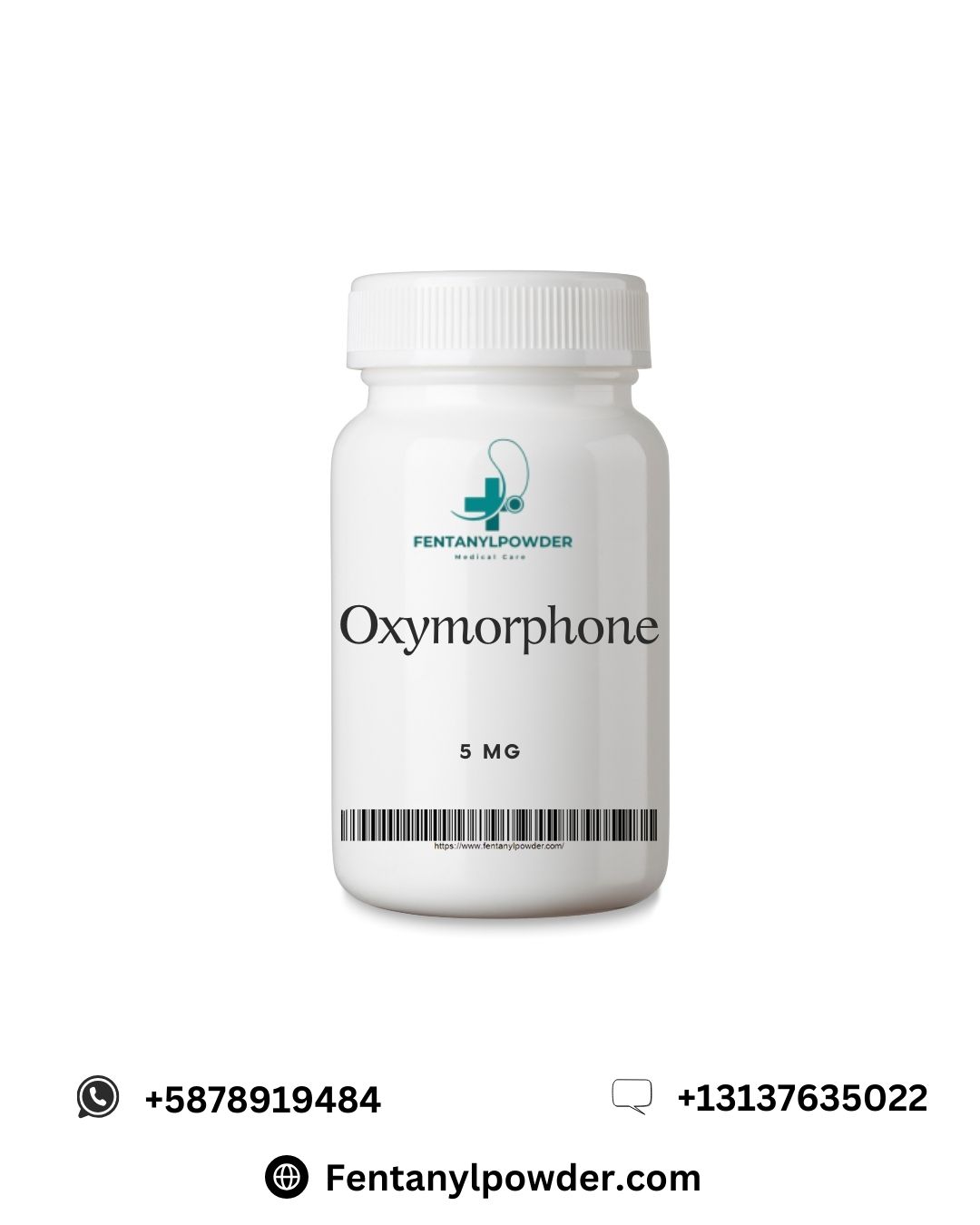
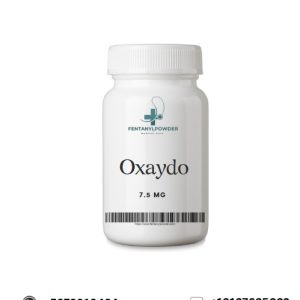
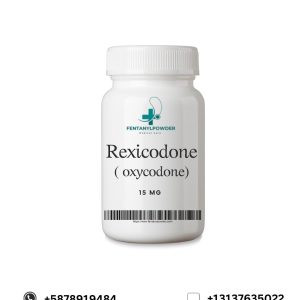
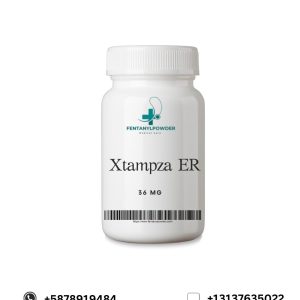
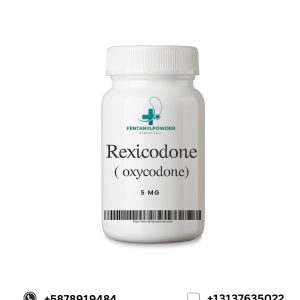
Reviews
There are no reviews yet.